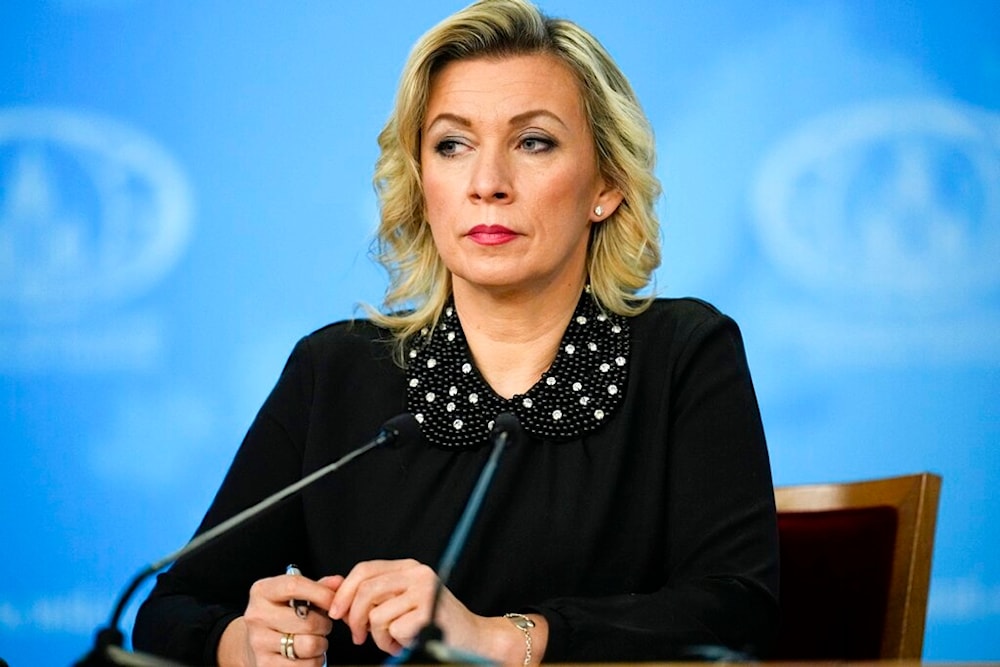US disagreeing with Gaza ceasefire resolution 'destructive': Russia
The Russian Foreign Ministry calls out the United States for its disapproval of the provisions of the recently approved ceasefire resolution in Gaza.
-

Russian Foreign Ministry Spokesperson Maria Zakharova attends Russian Foreign Minister Sergey Lavrov's annual news conference in Moscow, Russia, Wednesday, Jan. 18, 2023. (AP)
The United States disapproval of certain provisions within the United Nations Security Council resolution for an immediate ceasefire in Gaza is considered "destructive", Maria Zakharova, the official spokesperson for the Russian Foreign Ministry, said on Wednesday.
"Russia continues to insist on... the urgent implementation of the mentioned Security Council decisions, while we note the destructive nature of the statements of US representatives of the Security Council. They said they did not agree with some provisions of the resolution, which allegedly had no legal force. This is some kind of legal obscurantism," Zakharova told reporters.
Russian Foreign Minister Sergey Lavrov clarified that while the United States did not veto the UN Security Council resolution for a ceasefire in the Gaza Strip to protect its reputation, it still granted "Israel" considerable freedom of action in Gaza by declaring the resolution "non-binding".
On March 25, the UNSC adopted a resolution calling for an immediate ceasefire in Gaza, as well as the immediate and unconditional release of all captives.
Despite the US streak of abusing its veto power against ceasefire resolutions, it opted to abstain from voting this time around. White House National Security Communications Advisor John Kirby stated back then that the US supported a ceasefire in Gaza but disagreed with the provisions of the resolution.
US Ambassador to the UN Linda Thomas-Greenfield also alleged that the US abstained due to the language of the text not including a condemnation of Hamas.
Russia, China veto inefficient US Gaza ceasefire resolution in UNSC
Previously, Russia and China used their veto power to block a US-drafted Gaza ceasefire resolution at the United Nations Security Council.
The resolution, which fell short of explicitly calling for a ceasefire, faced criticism from both Moscow and Beijing for its perceived shortcomings.
The resolution garnered support from eleven UNSC members, a Sputnik correspondent said, with three opposing it and one abstaining from the vote. While the draft resolution acknowledged the need for an "immediate and sustained ceasefire" in Gaza, it stopped short of demanding such action.
One of the key points of contention was the language of the resolution, which only "determined the imperative" of a ceasefire without issuing a clear mandate.
Additionally, the document expressed support for ongoing diplomatic efforts to secure a ceasefire and called for the release of all remaining captives while also condemning "acts of terrorism", including the Palestinian Resistance's October 7 Operation Al-Aqsa Flood.
Russia, in particular, voiced strong opposition to the resolution, criticizing it for failing to unequivocally call for a ceasefire.
The Russian mission to the UN characterized the document as embodying "past distortions and unacceptable one-sided 'condemnations'," labeling it as "standard American deception."
Read more: US vetoes Russian bid to permanent ceasefire in UNSC Gaza resolution

 3 Min Read
3 Min Read








